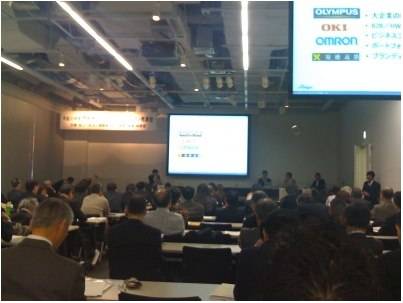Japan’s National Institute of Information and Communications Technology held its annual event for telecom related startups this week and several interesting companies gave presentations. Masaru IKEDA covered the event for the popular English language blog Asiajin and two of the companies caught our eye in particular.

Japan has long been a place where telephony and communications innovation can be found. Much of it is culturally specific but we think the work of companies Peace Mind Corp. and Brand Dialog could translate in interesting ways around the world.
Peace Mind Corp. offers an interesting service suitable for tough economic times. It’s an online mental health service that includes tracking of factors that can contribute to depression in workers. Using official guidelines from the Japanese government, Peace Mind monitors “accumulated fatigue” in employees with increased responsibilities and shorter deadlines. Connecting employees with clinical psychotherapists is part of the service as well.

While we can imagine some workers, particularly in cultures that prioritize independence, feeling unduly supervised by this kind of software – we can also imagine accounting software for less tangible assets like employee health being a positive development. We don’t know precisely how Peace Mind Corp works, but we can imagine getting an RSS feed analyzing the likely stress levels, based on things like blog posts, nasty comments and Twitter messages for example, of our team members here at ReadWriteWeb! That could be pretty cool.
Brand Dialog was the second presenting company that caught our interest. Its product Gridy is a corporate groupware suite offered for free and run off of the unused computing power of all its customers. It’s like the SETI@Home of collaboration services.

At a time when other organizations are leveraging voluntary distributed computing for tasks like attacking governments they don’t like (Hamas v.s Israel in particular) – it’s nice to see new applications of this model for positive purposes. We think there’s a whole lot of unexplored potential in this type of shared processing power, even if the most high profile consumer service trying it in recent times, the video site Joost, recently backed away from the idea.
Readers interested in English language tech news from Asia should check out the OpenWeb.Asia blog aggregator and Asiajin in particular.

















